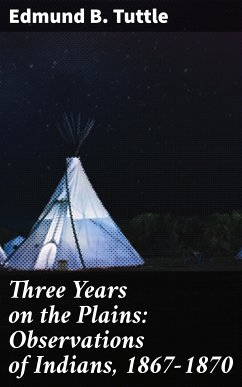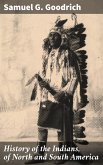In "Three Years on the Plains: Observations of Indians, 1867-1870," Edmund B. Tuttle provides an incisive and vivid account of life among Native American tribes, weaving together personal observations, cultural insights, and a historical context that is essential for understanding the dynamics of the American West during a tumultuous period. Written in an engaging narrative style that reflects both the earnestness of a traveler and the rigor of an observer, Tuttle's work captures the complexities of Indigenous societies in the face of encroaching settlement. His detailed descriptions and reflections illustrate the cultural richness and varied traditions of the tribes, while simultaneously navigating the broader themes of colonialism and the transformation of landscapes and lives in the wake of westward expansion. Edmund B. Tuttle, a contemporary and keen observer of the American frontier, likely drew from his own experiences and background in the region to craft this compelling narrative. His time spent living and interacting with Native peoples provided him with unique insights, allowing him to challenge prevailing stereotypes and offer a more nuanced perspective of Indigenous communities. Tuttle'Äôs writings serve as both a personal memoir and a historical document that preserves the voices of those often silenced in mainstream narratives. I highly recommend Tuttle's "Three Years on the Plains" to readers interested in American history, anthropology, and Indigenous studies. This work is not merely a travelogue; it is a vital contribution to the understanding of Native American cultures and a poignant reminder of the significance of empathy in our interpretations of the past. Furthermore, it encourages contemporary readers to reflect on historical injustices and the continuing impact of colonization.
Dieser Download kann aus rechtlichen Gründen nur mit Rechnungsadresse in A, B, BG, CY, CZ, D, DK, EW, E, FIN, F, GR, H, IRL, I, LT, L, LR, M, NL, PL, P, R, S, SLO, SK ausgeliefert werden.









